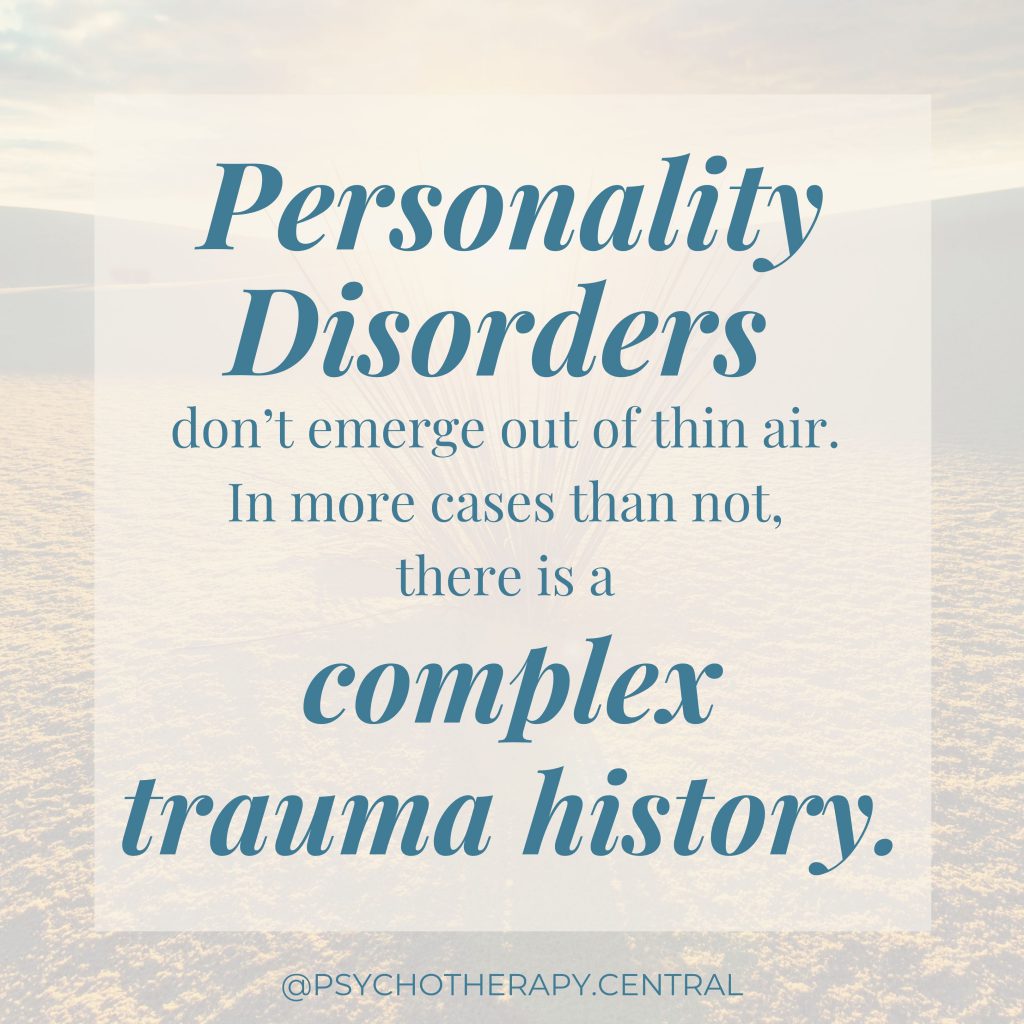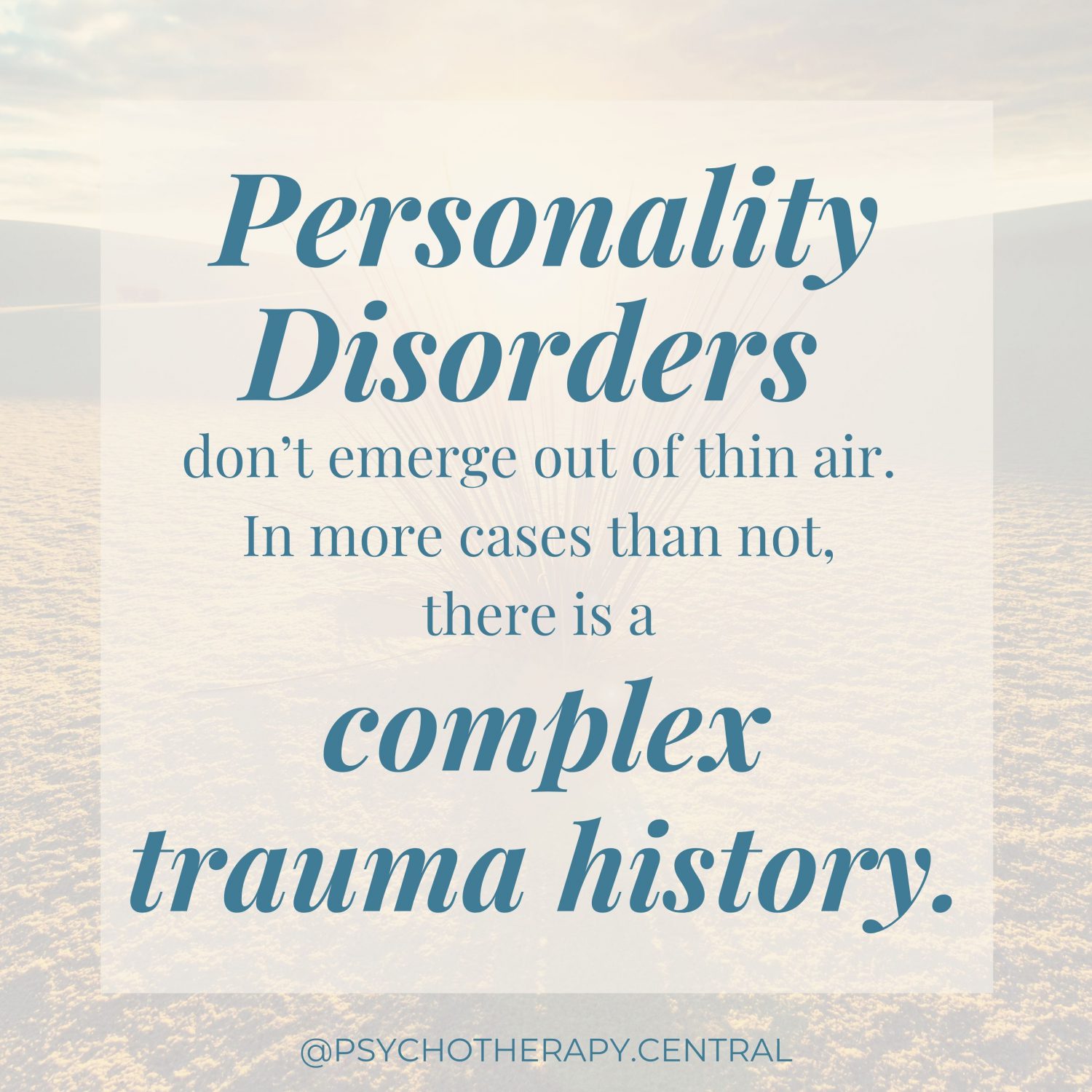Borderline personality disorder (BPD) has “come to be understood as a posttraumatic adaptation to severe childhood abuse and attachment trauma” (Courtoise, 2004).
As children in an unsafe environment, it is NORMAL to adapt to that environment to stay safe. That might mean hiding and becoming invisible to stay safe, numbing by using drugs or food to feel safer, shadowing a parent and never leaving them to feel safer. All of these and so much more are normal. When there is trauma in relationships, in therapy speak, we call it interpersonal trauma.
Interpersonal Trauma results in:
- Difficulty controlling anger and self-soothing in a healthy way.
- Dissociation – being out of the body
- Feelings of intense shame, guilt and responsibility
- Difficulty trusting and being intimate with others
- Belief that other people are self-focused
- Physical ailments
- Prevalent feelings of hopelessness, despair and isolation.
I would love to re-name personality disorders and call them personality adaptations, because that is what they are, and it stands to reason that the worse the trauma, the more extreme the adaptations.
If any of this speaks to you, know that my heart is with you, that you CAN heal adaptations with time, love and connection. Working with a therapist is a wonderful, safe way to work on your adaptations whilst staying in relationship. Healing is a journey; it starts with your commitment to yourself and the knowing you CAN heal.
So much love, Jen

Reference: Courtoise, C. A. (2004). Complex trauma, complex reactions: assessment and treatment. Psychotherapy: Theory, Research, Practice, Training. 4(4), 412-425.
